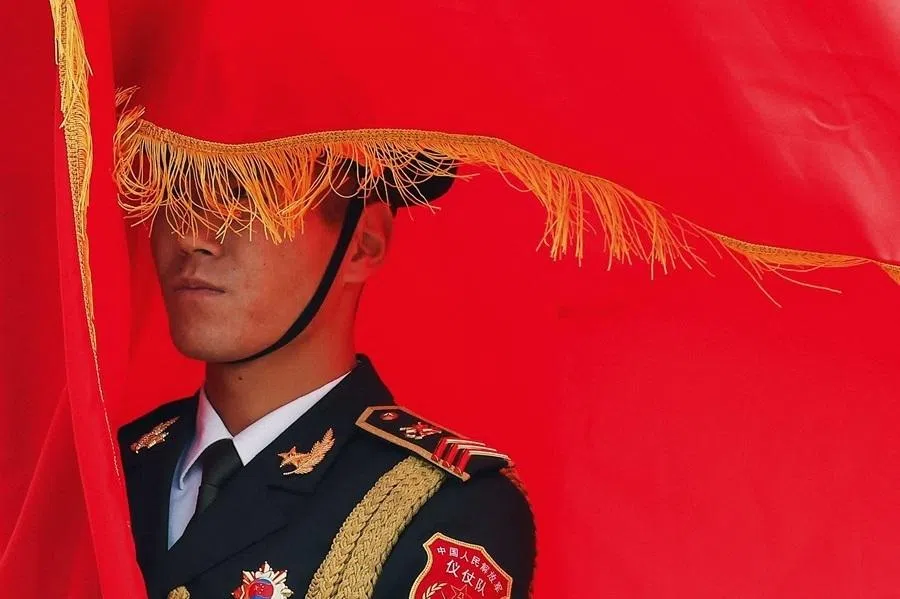[Big read] A ‘cyst’ in society: The mental health crisis behind random attacks in China
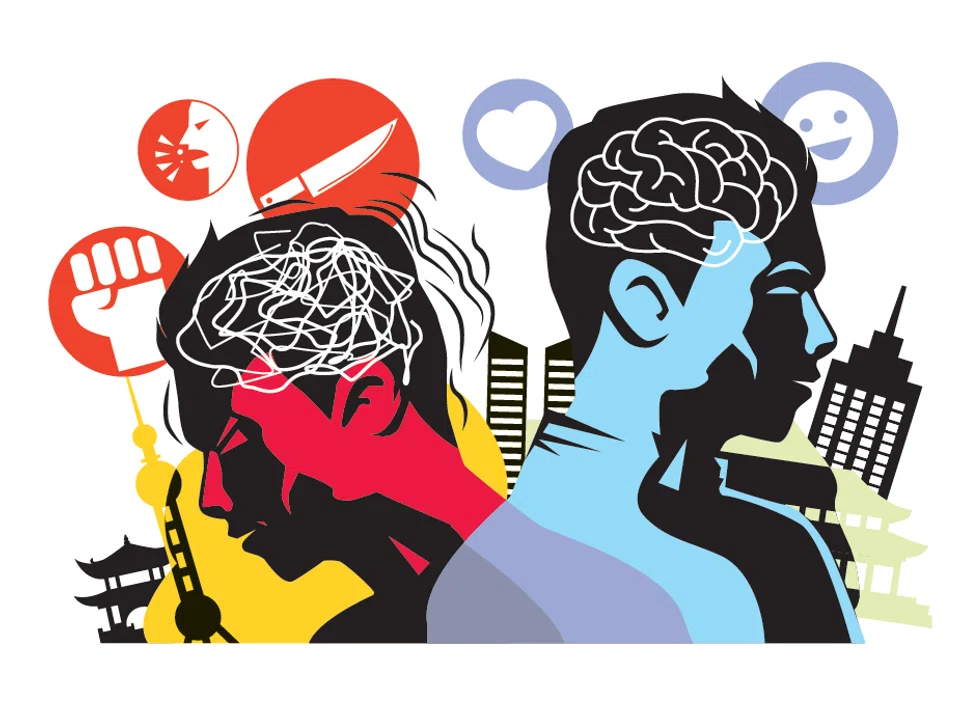
The recent rash of random attacks in China has prompted increased attention on mental health. What are the factors hindering people from getting the help they need, and what are some of the underlying issues that may manifest themselves in violent behaviour? Lianhe Zaobao correspondent Daryl Lim finds out more.
“What could drive someone to such cruelty?” wondered Hunan businessman Xiang, expressing his shock to Lianhe Zaobao outside Zhuhai Stadium after witnessing the horrific SUV attack that ploughed through a crowd. He lamented the devastation inflicted on so many families by a single individual.
Preliminary investigations reveal that the 11 November incident, resulting in 35 deaths and 43 injuries, stemmed from disputes over asset division in a divorce settlement. While rumours swirl about the suspect’s motives, Xiang, who specially visited Zhuhai for the airshow, chose not to speculate but believed that this was certainly not the actions of a sane person.
Multiple incidents
Just five days later, even before the shroud of the Zhuhai incident could dissipate, a student from a vocational institute in Yixing, Jiangsu, killed eight people and injured 17 with a knife. Three days later, a car rammed into the crowd at the entrance of a primary school in Changde, Hunan.
Depression is most prevalent in people whose monthly income is below 2,000 RMB (US$275). It is as high as 31% among the unemployed and retrenched...
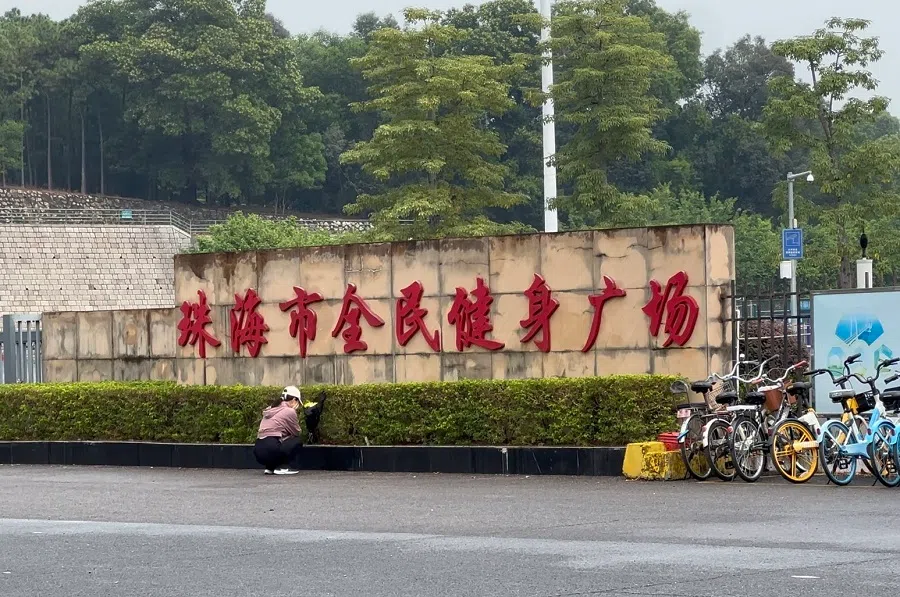
This year, there have been more than ten vicious attacks reported in various parts of China, seven in the past three months — these are just the cases that have been officially reported.
According to statistics compiled by the netizen @whyyoutouzhele (李老师不是你老师), who tracks public incidents in China and shares them on X, there have been nearly 100 alleged public attacks in the country over the past year. Lianhe Zaobao is unable to independently verify the nature and accuracy of these cases.
The frequency of these attacks highlights mental health issues in China, urging reflection on the socio-psychological effects of economic development and its potential link to violent incidents.
According to Wei Zhizhong, chief expert at Guangzhou’s Yiwei Duxin Psychological Counselling Centre, China’s socioeconomic development has shifted people’s needs from material to spiritual and emotional fulfilment. “People are focusing more on their feelings,” said Wei. “They’re asking themselves: ‘Am I happy? Am I valued? Do I have meaning and receive the respect I deserve?’”
When the higher hierarchy needs of people are not met, the disparity between aspirations and reality could easily spark social conflict, leading to mental health problems.
At least one in ten surveyed at risk of depression or anxiety
China’s weak post-pandemic economic recovery is a major challenge. Tan Gangqiang, head of Xiehe Psychological Consultation Office in Chongqing, notes that Chinese society is grappling with the psychological aftermath of both the pandemic and economic downturn. He firmly believes that the three-year Covid-19 lockdown created significant psychological trauma and heightened mental fragility.
A report on national mental health published in 2021 by the Institute of Psychology of the Chinese Academy of Sciences highlighted that satisfaction with the quality of material life in 2020 was significantly higher than in 2008. However, overall satisfaction with life, including family life and health, was slightly lower, with a decline in mental health awareness.
The institute’s latest survey in 2023 noted that at least one in ten in China is at risk of depression or anxiety.
Income and employment status are important to mental health. Depression is most prevalent in people whose monthly income is below 2,000 RMB (US$275). It is as high as 31% among the unemployed and retrenched, reflecting the far-reaching impacts of economic pressures on mental health. Tan highlighted that income reduction or loss directly threatens the quality of life and survival. “When survival is at stake,” he said, “mental health deteriorates rapidly.”
“At work, individuals are often required to echo slogans and follow directives from superiors, even if they privately disagree with the policies. This dissonance can lead to internal conflict and dissatisfaction.” — Tan Gangqiang, Head, Xiehe Psychological Consultation Office, Chongqing
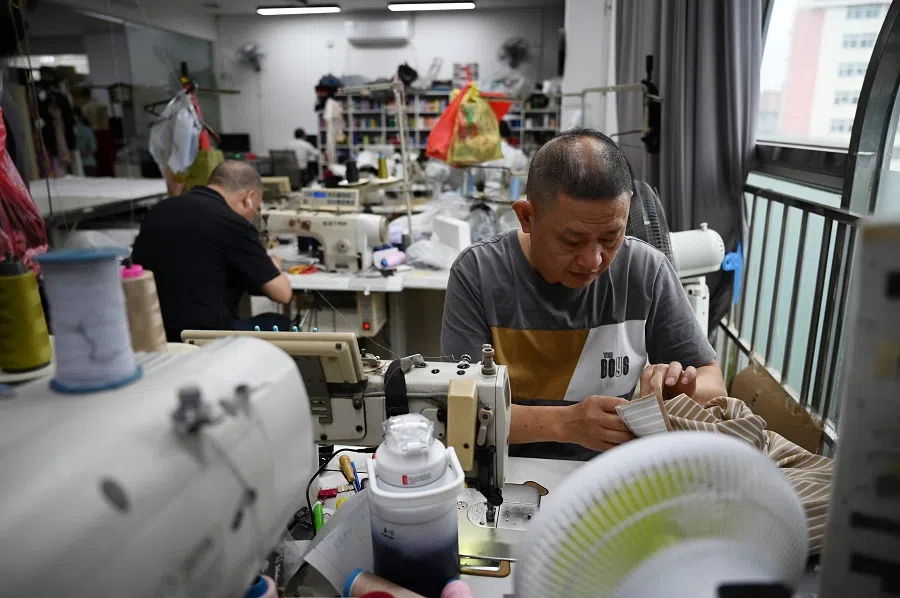
Regarding the link between violence and mental health, Tan suggests that dissociative identity disorder, while not necessarily causal, could be a contributing factor. He explains that the formation of multiple personalities can be influenced by societal pressures to conform, where individuals suppress their true feelings to meet homogeneous expectations. Such “camouflage culture” gradually creates mental discord in many people, particularly for professionals like civil servants and teachers.
“At work, individuals are often required to echo slogans and follow directives from superiors, even if they privately disagree with the policies. This dissonance can lead to internal conflict and dissatisfaction. If these emotions aren’t properly managed, they might manifest in other, potentially extreme, ways.”
Extreme incidents are like ‘cysts’
Some see the recent frequent violent incidents as a sign that “China’s society is sick”, but Wei thinks this is a hasty conclusion. He highlights that it is inevitable that some individuals struggle to adapt to the sudden pressures of social transformation, resulting in extreme actions. These issues, he suggests, are manifestations rather than definitive outcomes of societal change.
Wei compares social conflicts to cysts: society is the body, and conflicts are concentrated toxins. While uncomfortable but treatable, they warn of accumulating problems requiring societal self-improvement.
These “toxins”, Wei explains, stem from factors like flawed systems, lack of social cohesion and weak rule of law, eroding trust and civility. Though individual extreme incidents are not representative of the whole, Wei argues they reveal deeper societal conflicts demanding attention, much like cysts indicate underlying health issues.
This shortfall is compounded by a severe psychiatrist shortage — just 64,000 in 2021 (1.5% of all doctors) — and the low appeal of psychiatry among medical graduates, leaving China trailing behind similar nations.
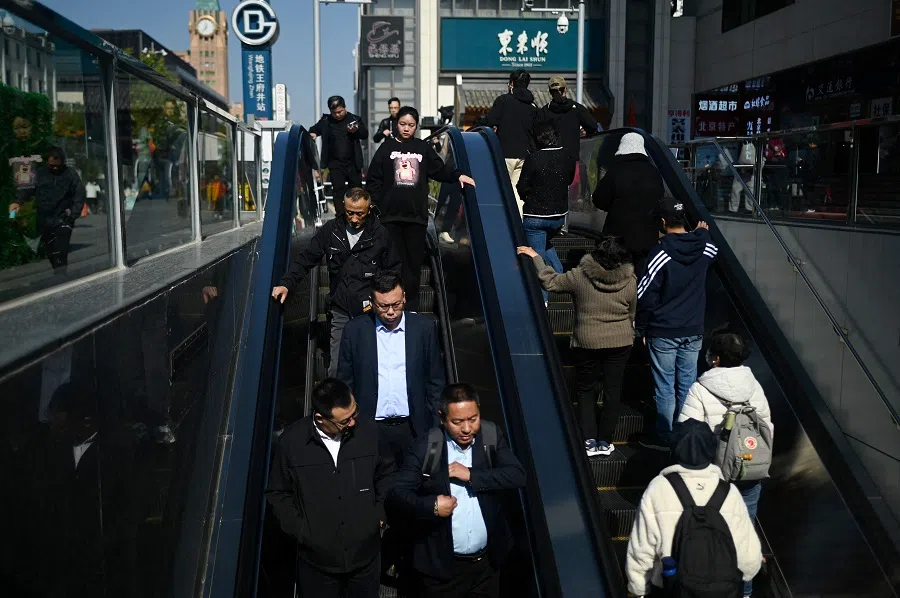
While there is no direct link between mental health and violent acts, and the Zhuhai incident requires further professional assessment, Zhao Litao, a senior research fellow at the National University of Singapore (NUS)’s East Asian Institute (EAI), cautions that socioeconomic factors like unemployment, wage disputes and precarious employment can negatively impact mental well-being. These pressures can exacerbate existing vulnerabilities and create an environment conducive to extreme incidents, threatening social stability.
Mental health barriers
Despite China’s growing emphasis on mental healthcare, reflected in the 19th and 20th National Congresses of the Chinese Communist Party and its inclusion in national healthcare plans, significant challenges remain. Experts, including EAI’s Zhao, point to persistent shortages in staffing and pervasive social stigma as key obstacles.
Demand for mental healthcare in China is rapidly outpacing its availability. Despite improved access, coverage remains below 60%, according to a 2023 report by the Institute of Psychology of the Chinese Academy of Sciences. This shortfall is compounded by a severe psychiatrist shortage — just 64,000 in 2021 (1.5% of all doctors) — and the low appeal of psychiatry among medical graduates, leaving China trailing behind similar nations.
“Currently, mental healthcare services can be said to be a mixed bag. Not only is there no coordination between academia, commercial providers, and socially-minded organisations, but there is also much competition and friction...” — Tan
Mental health professionals often encounter employment difficulties. According to a report published in 2023 by MyCOS, a research institute that focuses on universities in China, applied mental health has been listed as a “red-alert profession” (红牌专业) for five consecutive years, which means that it is a risky profession with high unemployment, low employability and low salary.
“Currently, mental healthcare services can be said to be a mixed bag. Not only is there no coordination between academia, commercial providers, and socially-minded organisations, but there is also much competition and friction. Some institutions excessively pursue commercial interests and ignore social changes and individual needs, resulting in diminished service outcomes.”
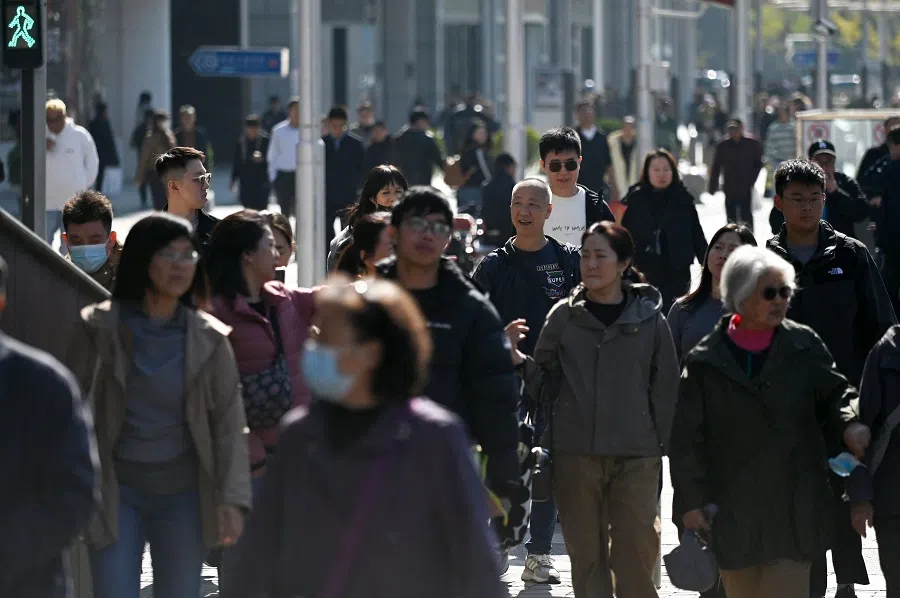
Tan criticises the politicisation of mental healthcare in China, arguing that its implementation as a political campaign prioritises performance indicators over actual results. “This focus on metrics, such as the number of reports and activities, overshadowing genuine progress and problem-solving. ”
“Unlike established sectors like healthcare and education, many Chinese view counselling as merely ‘chatting’, leading to scepticism about its value and cost.” — Wei Chizhong, Chief Expert, Yiwei Duxin Psychological Counselling Centre, Guangzhou
Wei Zhizhong adds that cultural differences hinder the acceptance of psychological counselling, a concept borrowed from the West. “Unlike established sectors like healthcare and education, many Chinese view counselling as merely ‘chatting’, leading to scepticism about its value and cost.”
Localising psychological counselling
Wei highlights that mental health problems are often misunderstood as “sick in the brain”, and even linked to IQ problems. As this view is deeply ingrained, many avoid discussing mental health, for fear that they would be regarded as incompetent or cognitively impaired. “This prejudice intensifies the social stigma of mental health problems and directly hinders those in need from seeking help”.
To address this, Wei advocates for culturally sensitive approaches, integrating counselling with traditional Chinese practices. Citing his “psychological teahouse” (心理茶馆), he said he counsels while having tea and chatting with his clients. “This enables clients to articulate their inner thoughts in a more relaxed atmosphere and effectively reduces the mental burden, stigma and the issue of ‘face-saving’ during psychological counselling.”
Balancing public needs and government control
In the event of major incidents, Chinese authorities tighten information control and restrict public opinion. Academics say that timely access to information has a significant impact on social trust and mental health.
The police delayed reporting the high casualty count from the Zhuhai SUV incident, releasing details a day later. Videos surfaced on social media the same evening but were quickly removed, and online discussions were tightly controlled. Media coverage was restricted to official police statements and directives.
Zhao Litao explained to Lianhe Zaobao that such restrictions on public discourse can erode social trust. When the public seeks information but cannot access reliable sources, misinformation and rumours can spread, further undermining trust.
In extreme incidents, the government often controls information to prevent copycat actions. “Balancing this control with the public’s need for information is a significant management challenge.” — Zhao Litao, Senior Research Fellow, EAI, NUS

He points out that while the impact of declining social trust on individual mental health might not be obvious in normal times, it becomes significant during emergencies or sudden events.
Zhao argues that for Zhuhai residents, having access to detailed information about the SUV incident is crucial for building social trust. Without accurate and transparent information, negative emotions like anxiety and worry can arise, directly impacting mental health.
However, Zhao also notes the tension between public demand for information and government information management. In extreme incidents, the government often controls information to prevent copycat actions. “Balancing this control with the public’s need for information is a significant management challenge.”
Much that China can do
After the random attacks over China, the central government ordered the local governments and government agencies, including the judiciary and those responsible for public security, to carry out large-scale investigations to resolve conflicts and disputes as well as to address potential security risks.
Tan Gangqiang said the current measures used to identify suspects as subjective and vague, posing risks of injustice and abuse of power. Communities often set these criteria without a clear legal basis, leading to controversy and potential mislabelling of individuals whose behaviours deviate from mainstream culture. He argues that in a nation governed by the rule of law, actions not explicitly prohibited by law should be permissible, rather than judged by arbitrary standards. “Misuse of power for personal motives could unjustly harm innocent people.”
Tan believes that the key to reducing violent incidents lies in strengthening the rule of law and further improving the social mental health system.
He advocates for legitimate, fair and efficient mechanisms, improved education and social security, and diverse channels for emotional expression. Addressing social injustices and rebuilding trust and hope are also crucial to fundamentally alleviating social conflicts.
This article was first published in Lianhe Zaobao as “中国社会“长疮”了? 无差别袭击事件背后 失意群体的心病危机”.



![[Big read] When the Arctic opens, what happens to Singapore?](https://cassette.sphdigital.com.sg/image/thinkchina/da65edebca34645c711c55e83e9877109b3c53847ebb1305573974651df1d13a)

